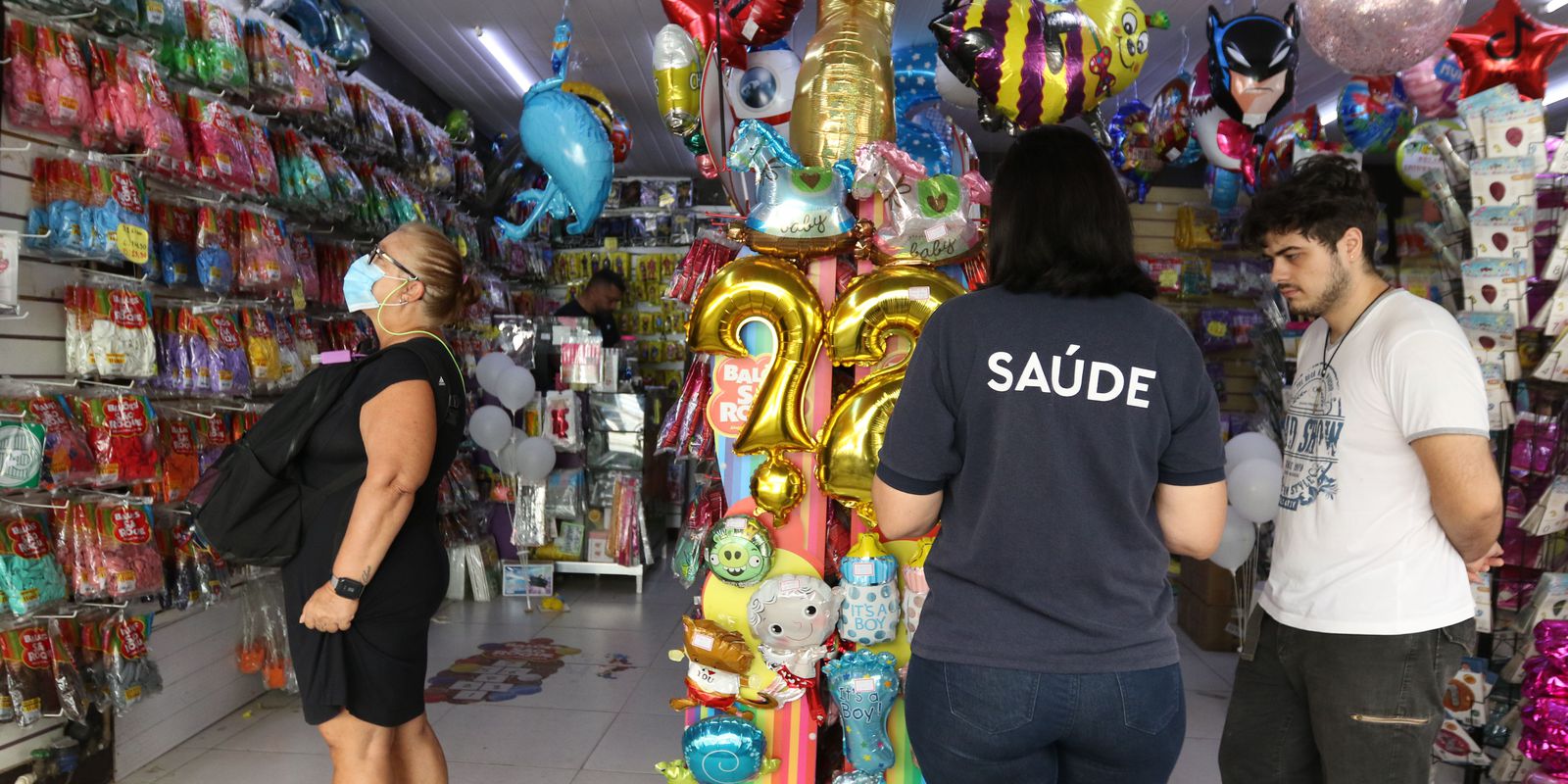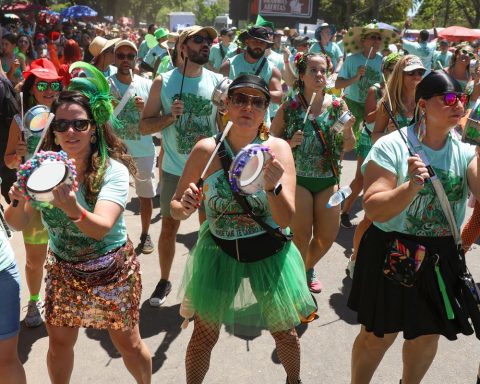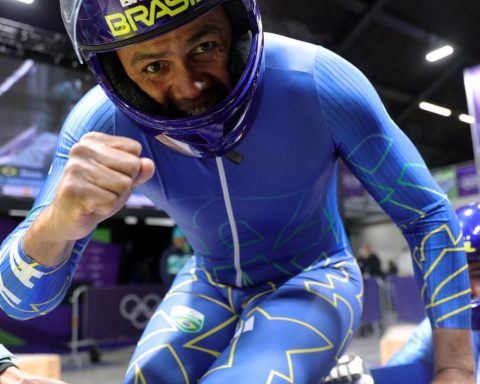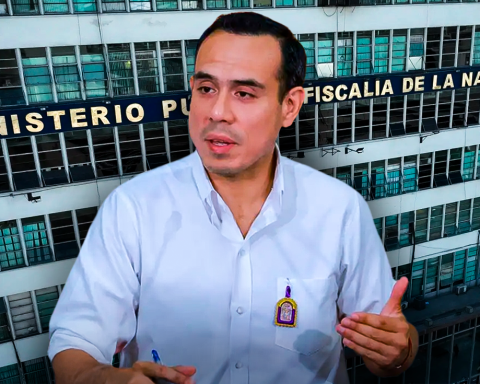More than 15 days after carnival, and ten days after the end of the mandatory use of masks in closed environments, Rio de Janeiro does not face an increase in cases and deaths by covid-19, but the evaluation of the epidemiological scenario divides opinions from researchers heard by Brazil Agency.
According to the Brazilian Society of Infectious Diseases and infectologist Celso Ramos, a member of the Multidisciplinary Work Group (WG) to Combat Covid-19 at the Federal University of Rio de Janeiro (UFRJ), it is possible to say that the scenario remains favorable. For the Covid-19 Observatory, of the Oswaldo Cruz Foundation (Fiocruz), however, the data may already indicate that the number of cases has stopped falling.
Professor of infectious diseases at UFRJ, Celso Ramos did not expect a worsening in the city’s epidemiological scenario due to the high percentage of people vaccinated, which is almost 85% with a second dose or a single dose and 45% with a booster dose. Two weeks after Carnival, he considers that the expectation was confirmed and that there was no change in the incidence of the disease.
“We are in a very good situation in Rio in terms of vaccination. [A situação] of the city of Rio is comparable to that of the best countries in the world and to the situation of developed countries”, he said.
Regarding the end of the mandatory use of masks in closed places, in force since March 8, the doctor said that it would already be possible to perceive a worsening trend in some data from the municipality, if that had been the impact. “If there was a sudden increase in transmission, at this point, on the tenth day, we should already be seeing this. of tests by symptomatic people and the percentage of positive tests. We are not having that. So far, nothing has happened”, said Ramos, who coordinates the Technical Chamber of Infectious Diseases of the Regional Council of Medicine of the State of Rio de Janeiro ( Cremerj).
The doctor considered the decision to withdraw the mandatory masks right, but stressed that it is still necessary to keep them in health units, both by patients and professionals. “These are places that concentrate people who potentially arrive with the disease and people who may be at risk for the disease. [a máscara] should continue to be used, and many units continue to do so”, said Ramos, who advocates the return of masks if any concrete threat appears. something that could happen.”
It is necessary to accept that any epidemiological situation is variable and that the virus must not disappear, said the UFRJ professor. “The fact that R [taxa de transmissão] being at 0.3 does not mean that it will reach zero, it does not mean that the disease will disappear. We are without polio in Brazil at the moment, but in the world as a whole, the disease has not disappeared. We had been without measles in Brazil for a long time and he came back. Covid will not disappear.”
A member of the Covid-19 Observatory of the Oswaldo Cruz Foundation and a researcher in public health, Raphael Guimarães said that, next week, it will be possible to be more confident about the possible impacts of Carnival on the epidemiological scenario. Despite this, Guimarães sees signs that agglomerations and travel may indeed have changed the curve of cases and highlights that an interruption of the fall (in the daily number of new cases) has already been noticed. “This is worrying. We cannot see an increase in cases, but we can see that it has stopped falling, which is already an indication that we are moving towards a scenario of stabilization of cases that is not good. And this is not happening only in Rio de Janeiro”, he added.
Regarding the end of mandatory use of masks, he admitted a possible influence on the numbers in the same sense, but stated that it is too early to be clear in this assessment. “Experience shows that, even in places with high vaccination coverage, when there is early flexibility of masks, the tendency is to have a reversal with a high number of cases. We see it happening in Europe and in some Southeast Asian countries.”
According to Guimarães, with the greater transmissibility promoted by the variants of the coronavirus, the ideal level of immunization for removing the masks became 90% of the population with two doses. The data appears in the Bulletin of the Covid-19 Observatory released last week, which cites research according to which, in addition to reaching this level, it is necessary to wait from two to ten weeks for all those vaccinated to actually develop immunity.
For the president of the Brazilian Society of Infectious Diseases in Rio de Janeiro, Rodrigo Lins, carnival did not have a significant impact on the city’s epidemiological scenario, but the removal of mandatory masks could have waited until this assessment could be made more clearly, in instead of having been decreed the week following the revelry. Even so, he says he has few reservations against easing.
“My point is that it’s a complex issue to just say: ‘release or not release’. There are patients at greater risk, people who do not have complete regimens, environments that, even closed, are not the same and scenarios such as hospitals and schools”, said Lins, who felt a lack of more guidance for specific situations such as schools, where many children did not complete the vaccination schedule. “I don’t think it was a wrong decision, we’re seeing that Carnival didn’t have a significant impact.”
According to Lins, it is still too early to say that the current scenario is one of stabilization of cases, rather than a decline. “We will have to follow up for a few more days. In some countries, there was a small increase after the number dropped a lot, and people are in doubt. But mortality continues to fall,” she said. “I don’t necessarily think [o número de casos] have to drop to zero to take this conduct [fim da obrigatoriedade] about the mask.”
Numbers
On Shrove Tuesday, March 1, the moving average of new cases of covid-19 was 1,472 per day, less than half of the number recorded 15 days earlier, according to the data panel of the Municipal Health Department of Rio de Janeiro. January. Today (18), the moving average reached 1,320 cases per day, maintaining, since March 8, an oscillation between 1,248 and 1,380 new daily records.
The numbers consider the date of disclosure of the cases, that is, the day they were notified to the Unified Health System (SUS), a number that is subject to delays and impoundments. When considering the date of onset of symptoms, the moving average was 227 new cases on March 1, against 634 on February 16.
Until March 14, the average remained above 200 cases per day, and reached 149 on March 17. This number, however, should be revised upwards, because a patient who is diagnosed next Monday, for example, may report that he felt the first symptom today, which would cause his case to be retroactively counted on this date.
As for serious cases, the panel of the Municipal Health Department reports that there were 32 patients hospitalized in intensive care units on March 1, 10 more than the 22 counted yesterday (17).
Finally, the seven-day moving average of deaths was at 27 new confirmed deaths per day on March 1 and has also dropped since then. Despite this, since March 9, the average fluctuates between 18 and 21 new deaths per day and is at 20 on today’s date (18).















